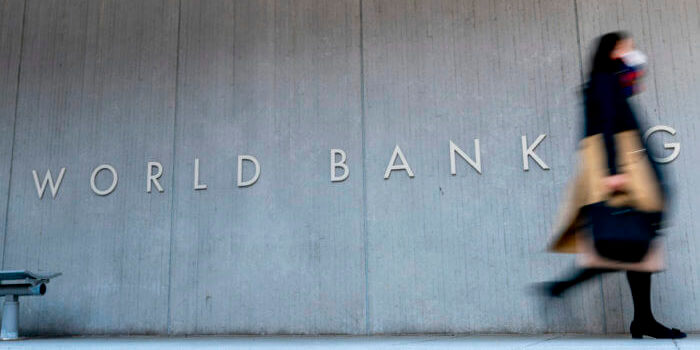(Headline USA) The World Bank reported on Monday that oil prices could be pushed into “uncharted waters” if the violence between Israel and Hamas widens, which could result in increased food prices worldwide.
The possible famine could impact the U.S., where the Biden administration’s failed policies have significantly curtailed domestic oil production after former President Donald Trump led the country to become an energy exporter for the first time in decades.
Biden’s other failed economic policies, including his massive federal spending that has led to rampant inflation, and his open-border policy that has added 10 million illegal immigrants into the U.S. interior—many of them reliant on government subsidies—are also likely to compound the crisis ahead.
Ironically, much of the U.S. taxpayer’s money has been funneled into another war, the Ukraine conflict with Russia, which has no end in site, nor any clear objectives, nor any U.S. oversight as to how the money is being spent.
But while Ukrainian oligarchs and Hamas terrorists reap the benefit of U.S. toil and treasure, American citizens may soon suffer economically if they are not already doing so.
The World Bank’s Commodity Markets Outlook found that while the effects on oil prices should be limited if the conflict doesn’t expand, the outlook “would darken quickly if the conflict were to escalate.”
The attack on Israel by the militant organization Hamas and the ensuing Israel military operation against Hamas have raised fears of a wider Mideast conflict.
And the threat of escalation looms. Israeli tanks and infantry pushed into Gaza over the weekend as Israeli Prime Minister Benjamin Netanyahu announced a “second stage” in the war. Hamas officials have called for more regional assistance from allies, including Iran-backed Hezbollah in Lebanon.
The World Bank report simulates three scenarios for the global oil supply in the event of a small, medium or large disruption.
Effects should be limited if the conflict doesn’t widen in a “small disruption” scenario—as oil prices are expected to decline from current levels of roughly $90 a barrel to an average of $81 a barrel next year, the World Bank estimates.
But during a “medium disruption”—equivalent to the disruptions experienced during the Iraq war—the global oil supply of about 100 million barrels a day would decline by 3 million to 5 million barrels per day, driving oil prices up possibly by 35%.
In a “large disruption” scenario—comparable to the Arab oil embargo of 1973—the global oil supply would shrink by 6 million to 8 million barrels per day and prices could go up by 56% to 75%, or to $140 to $157 a barrel, according to the report.
Indermit Gill, the World Bank’s chief economist, said Russia’s invasion of Ukraine has already had disruptive effects on the global economy “that persist to this day.”
“If the conflict were to escalate, the global economy would face a dual energy shock for the first time in decades—not just from the war in Ukraine but also from the Middle East,” Gill said.
Ayhan Kose, the World Bank’s deputy chief economist, said higher oil prices will inevitably result in higher food prices.
“If a severe oil price shock materializes, it would push up food price inflation that has already been elevated in many developing countries” as a result of Russia’s Ukraine invasion, Kose said. “An escalation of the latest conflict would intensify food insecurity, not only within the region but also across the world.”
Overall, oil prices have risen about 6% since the start of the conflict. And gold—a commodity that tends to rise in periods of conflict—has increased roughly 8%, according to the World Bank.
At a Bloomberg event on Thursday, Treasury Secretary Janet Yellen said the Biden administration was monitoring the economic consequences of Israel’s war against Hamas carefully.
“So far, we have not yet seen much that has global consequences,” she said, but if the war spreads “of course there could be more meaningful consequences.”
International Energy Agency Executive Director Fatih Birol said between Russia’s invasion and the latest violence between Israel and Hamas in Gaza, “no one can convince me that oil and gas are safe and secure energy choices for countries or consumers.”
Adapted from reporting by the Associated Press

